Daniel Chapo was sworn in as Mozambique’s new president in a quiet ceremony held in the capital, Maputo, on January 15, 2025, despite a significant boycott from opposition groups and ongoing violence in the aftermath of disputed elections.
Chapo, 47, who won with 65% of the vote, pledged to devote his energies to promoting national unity and human rights, while addressing the violence that has plagued the country since the October elections.
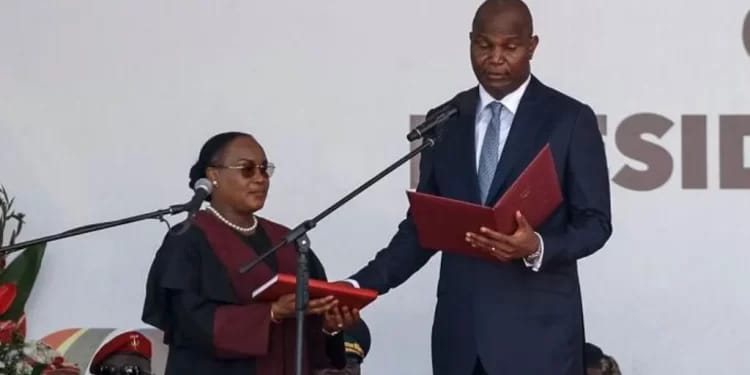
In his first presidential address, Chapo promised to lead Mozambique out of its current political crisis and to rebuild the nation’s damaged social fabric.
“I will devote all my energies to restoring patriotism, ending corruption, and bringing pride to being Mozambican,” he declared. However, his presidency comes amidst significant unrest, with civil society groups reporting over 300 deaths in clashes with security forces since the election.
Opposition parties, including Renamo and MDM, along with defeated presidential candidate Venâncio Mondlane, boycotted the swearing-in ceremony. Mondlane, who contested the election as an independent candidate, garnered 24% of the vote, and immediately rejected the election results, labeling them fraudulent.
He called for a nationwide strike, leading many businesses in Maputo to shut down on the day of Chapo’s inauguration.
Supporters of Mondlane clashed with security forces outside the event, resulting in additional fatalities, including at least eight deaths of protestors on inauguration day.
The violence escalated on the day of the inauguration, as police used force to disperse crowds of protestors, most of whom supported Mondlane. Some of Chapo’s supporters were also caught in the clashes.
The protestors, many of whom attempted to enter the heavily guarded Independence Square where the ceremony was held, were blocked from participating, further fueling tensions.
“Is this a wedding with private invitations? We want to see the president being sworn in, but we’ve been told we can’t,” said Maputo resident Paulu Hamuze, expressing the frustration of many Mozambicans who were not allowed to attend the ceremony.
Chapo’s win has been tainted by allegations of electoral fraud, and many in Mozambique are questioning his legitimacy. Civil society groups like Plataforma Decide have called the elections rigged, and despite his long-standing political career, Chapo faces a divided country.
Even some of those who admire him, such as civil society activist Mirna Chitsungo, argue that he is assuming power under questionable circumstances, and that the process was not fair or transparent. “He is taking power in a context where the people do not accept him,” Chitsungo said.
Chapo’s ability to unify a fractured nation will be tested immediately as he deals with post-election unrest and attempts to implement economic reforms. He is expected to focus on restoring peace, reducing corruption, and stimulating economic growth. However, analysts argue that he will face fierce opposition, particularly from powerful cartels operating within the country.
These groups have dominated various sectors such as medicine, sugar, books, and even organized crime, and dismantling them will be a key challenge for Chapo’s administration.
Chapo’s background, however, may give him the tools to address the challenges ahead. Born in Inhaminga, Sofala province, during Mozambique’s civil war, Chapo has experienced the hardship and division that still lingers in the country.
His career has spanned various roles, including radio and television hosting, legal notary, university lecturer, and provincial governor, before he rose to the position of Frelimo’s general secretary. He has built a reputation for being humble, patient, and open to dialogue.
In his recent birthday address, Chapo acknowledged the monumental task before him. “We must recover our country economically… it’s easy to destroy, but building is not an easy task,” he said, signaling his awareness of the difficult road ahead.
National reconciliation, job creation, electoral reform, and decentralizing power to regional authorities are top priorities for Chapo, but analysts warn that without public support, he may struggle to enact meaningful change.
While some view his presidency as a fresh start, others argue that his lack of widespread legitimacy could undermine his efforts to reform the country. “Chapo is a figure of dialogue and consensus, not one to perpetuate Nyusi’s violent governance style,” said Chitsungo, noting that many Mozambicans are hopeful for a change in leadership.
On the other hand, Mondlane, who claims to be the rightful winner of the elections, is reportedly sheltering in a Maputo hotel under unknown security arrangements. He has continued to call for mass protests and has been a vocal critic of the government.
Following the inauguration, some of his supporters alleged that vendors in a Maputo market were targeted by gunfire, mirroring the violence that occurred during protests earlier in the year.
Despite this, Chapo’s government has so far refused to engage with Mondlane directly, and it remains to be seen how the president will respond to the demands of the opposition.
In order to navigate the political crisis, Chapo will need to reach out to Mondlane and other dissenting voices and show that he is capable of addressing the underlying issues that have led to this unrest.
Chapo is also expected to face pressure to address corruption and the widening gap between the country’s elites and ordinary citizens. “If Chapo is to have any chance of bringing an end to the broader political crisis, he will require support from others to make lasting, structural change,” said prominent clergyman Rev Anastacio Chembeze.
Chapo has promised to focus on reducing the lavish salaries and perks enjoyed by government officials and the elite, many of whom earn ten times Mozambique’s minimum wage.
As the first president of Mozambique who did not participate in the independence war, Chapo is seen as part of a new generation of leaders. His tenure could either mark a new chapter for the country or become another chapter in Mozambique’s long history of political turbulence.
Time will tell if he can overcome the numerous challenges he faces, including rebuilding a nation fractured by political strife, economic inequality, and corruption.
Chapo’s leadership will be pivotal in determining whether Mozambique can finally emerge from the shadows of past conflicts and build a more prosperous, unified future.
However, analysts caution that if he fails to bring meaningful change, he may not survive past a single term.

































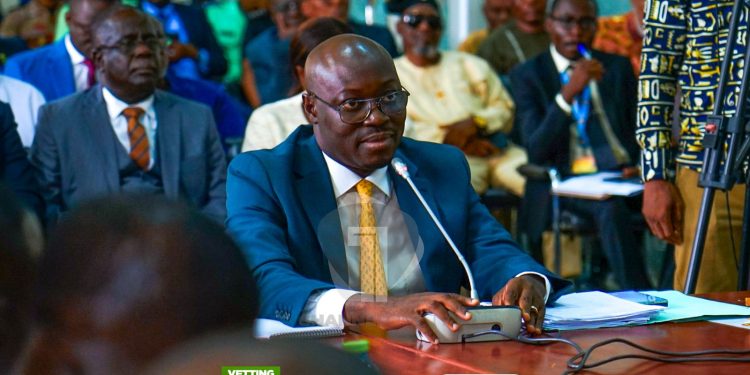


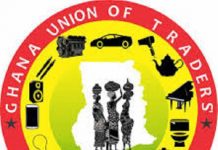




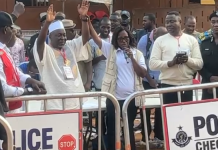














![[FREE FREE MONEY] Predict and Win a Guaranteed GH¢200 From Us EVERY WEEK](https://wordpress.ghanatalksradio.com/wp-content/uploads/2022/02/Predict-and-Win-Final-09-03-2021-218x150.jpg)
![[Predict & Win – 8th/Oct.] WIN A Guaranteed ¢200 From Us This Week](https://wordpress.ghanatalksradio.com/wp-content/uploads/2021/10/maxresdefault-16-218x150.jpg)
![[Predict & Win – 2nd] WIN A Guaranteed ¢200 From Us This Week](https://wordpress.ghanatalksradio.com/wp-content/uploads/2021/09/maxresdefault-50-218x150.jpg)
![[Predict & Win – 25th] WIN A Guaranteed ¢200 From Us This Week](https://wordpress.ghanatalksradio.com/wp-content/uploads/2021/09/maxresdefault-36-218x150.jpg)
![[Predict & Win – 18th] WIN A Guaranteed ¢200 From Us This Week](https://wordpress.ghanatalksradio.com/wp-content/uploads/2021/09/maxresdefault-23-218x150.jpg)

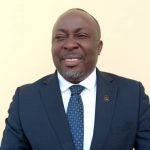
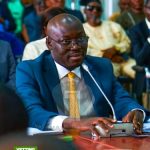





![[National cathedral] See full list of churches that have contributed since 2018](https://wordpress.ghanatalksradio.com/wp-content/uploads/2020/09/Ghana-National-Cathedral-GhanaTalksRadio-100x70.jpg)



